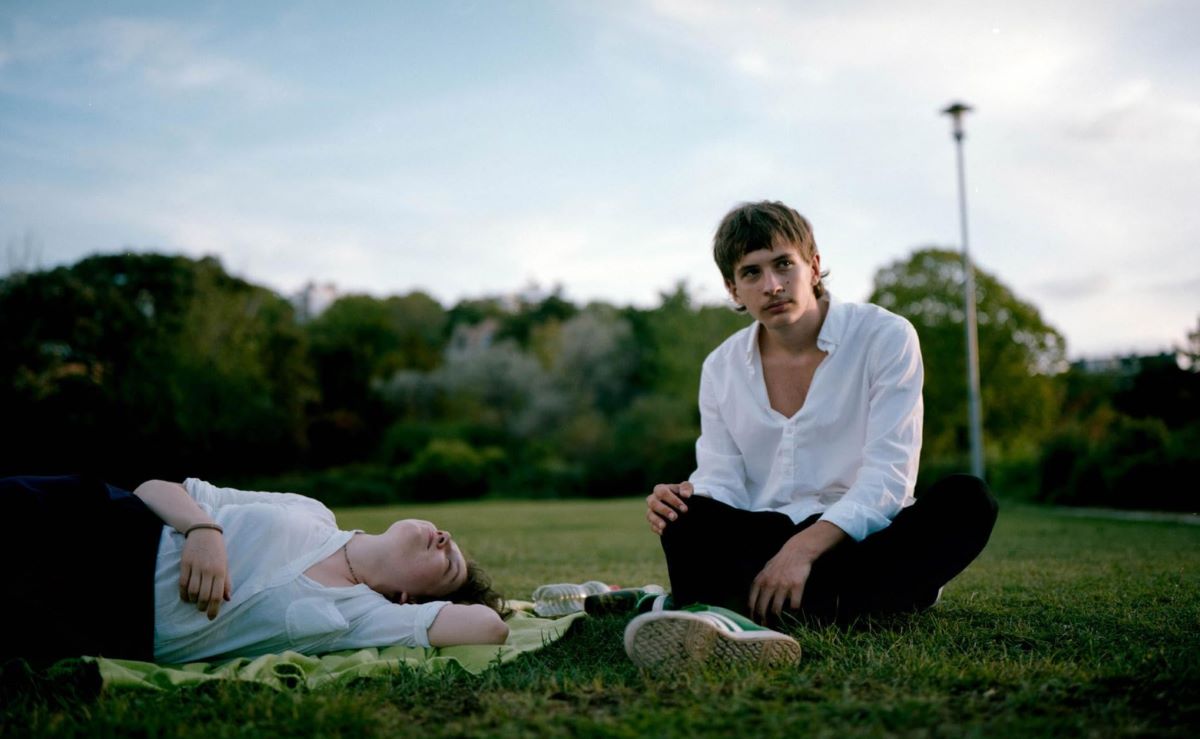Explanation for Everything (2023)
Original title: Magyarázat mindenre
Directed by Gábor Reisz
In Budapest, young Abel prepares for his final exams, caught between family expectations and his unspoken love for his friend Janka. When the exam goes awry, Abel’s failure becomes the spark that ignites a clash between his father, a staunch conservative, and his progressive history teacher. The incident eventually escalates into a media scandal, moving the conflict to an even broader stage…
Ordinary people in ordinary circumstances, who through a series of minor accidents, disappointments, signs, dreams, events, and entanglements, become extraordinary. This mirrors the everyday life of everyone: a week in the life of Abel, an eighteen-year-old grappling with his high school final exams, his father Gyorgy, a conservative architect, Janka, his classmate and best friend whom Abel is in love with, who in turn loves Jakab, the liberal history teacher, and in the lives of their respective families, friends, colleagues, neighbors, and strangers, all interconnected by the workings of the media triggered by Erika, a young provincial journalist who has moved to the city, who accidentally overhears a conversation while smoking out on her balcony: an incident just happened and passed from mouth to mouth, from an angry father to his doctor, to a taxi driver and then a barber, a hairdresser, a plumber. Thus, a casually intercepted fact transforms into the news that could improve Erika’s standing at the daily newspaper “Hungarian Days” where she contributes: failed in history at graduation, Abel hinted to his father that the failure was due to the tricolor cockade accidentally left on the lapel of his jacket from March 15, the national holiday celebrating the Hungarian War of Independence of 1848.
Professor Jakab asked him why he wears it, Abel recounts, who in reality we have seen remain silent on every subject. Gyorgy, who has already clashed with the professor in the past, bites and considers the gesture a political choice: indeed, in Hungary in 2023 the cockade (outside of March 15) has become a symbol of Orbán’s nationalism. This tricolor ribbon (hung, for example, on the rearview mirror of a taxi) is the underlying thread that connects the stories and voices that mix in Explanation for Everything [Magyarázat mindenre], the third feature film by Gábor Reisz, which at the Turin Film Festival won the Special Jury Prize and the Audience Award in 2014 with For Some Inexplicable Reason and a Jury Mention in 2018 with Rossz versek [Bad Poems].
Alongside, naturally, the palpable disorientation, inevitable confusion, expressed or repressed desires, and the anxieties of the young on the brink of adulthood, on which the film opens, with a very small square that gradually enlarges until it occupies the entire black screen, during the long night of post-diploma celebrations. And the messes into which they are dragged by adults who, in their hypothetical certainties, are increasingly aggressive and ambitious than them and sometimes even clumsier. Starting with “Monday: Abel realizes he is in love,” Explanation for Everything unfolds over the following days moving from one character to another, without pointing fingers at enemies or “bad guys”: certainties have crumbled (even if sometimes they seem solid), the ideals of ’56 wink from one side while on the other the ideals of communist Hungary persist, and both sides claim that concept of patriotism represented by the tricolor cockade.
“There are only two categories,” says Gyorgy. “Patriots and traitors.” “Forget the third: assholes,” replies Jakab. But how do you explain to an eighteen-year-old (to any eighteen-year-old) what these categories mean that have been hybridized in a thousand ways over the decades? And how do you, also, assign blame to a young journalist with a clean face who is only looking for a place in a world that does not have a dress code (as the editor-in-chief tells Erika) but also strongly advises against attending editorial meetings in sneakers? They must find their own way to that truth so proclaimed, but also so disregarded or misunderstood, by the older generation. With Abel, Janka, and the others, we traverse this beautiful and everyday Budapest with the same lightness and acumen with which we traversed Tbilisi in Alexandre Koberidze‘s What Do We See When We Look at the Sky? Not because the two films are stylistically similar: Gábor Reisz has humor, lightness, and the ability to hold together a choral narrative, but not the almost fairy-tale-like surreal taste of Koberidze. Yet the same sensation of air and narrative skill and freedom is perceived in his film, which flows tirelessly, never letting us detach, and tire of it. And on the night of August 26, we run towards the lake with Abel and his friends.
Cineforum, April 30, 2024





